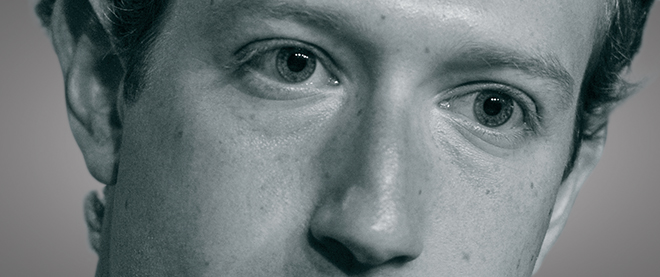Click here to surrender your privacy
A Hot Docs film details how Google and Facebook serve up reams of private data to the CIA, FBI and others
Photo illustration by Laruen Cattermole
Share

Leigh Bryan, a 26-year-old bar manager from Coventry, England, had booked a hotel on Hollywood Boulevard and was looking forward to some wild times in California. Instead, after showing his passport at the L.A. airport, he was taken to a holding room, questioned for five hours, then handcuffed, jailed overnight and flown home the next morning. U.S. authorities had red-flagged Bryan because of tweets he’d sent to a friend in Britain three weeks earlier. One read: “Free this week for a gossip/prep before I go destroy America? X.” Another message, referencing TV’s Family Guy, said he’d be “on Hollywood Blvd and diggin’ Marilyn Monroe up!” At the airport, Bryan tried to explain that “destroy” was English slang for drunken partying, and that he had no intention of disinterrring a screen legend, but U.S. officials didn’t buy it.
Bryan is not alone. In Terms and Conditions May Apply, a documentary feature showing next week at Toronto’s Hot Docs festival, his case is one of several absurd stories about innocents targeted by police or government agencies trolling personal Internet accounts. This witty yet chilling film presents a dire portrait of how, with just a few keystrokes, we surrender our privacy to a brave new world of state surveillance beyond anything George Orwell ever dreamed of.
We all do it routinely. You download an app, upgrade some software, register on a website and up comes that mass of fine print called the “terms of service” contract. Without reading it, you scroll to the bottom and click on “I agree.”
The documentary, directed by Cullen Hoback, a 31-year-old American, presents an alarming view of how much ground such contracts cover. As a prank, a site called Gamestation put a clause in its user agreement for one day only: “By placing an order via this website, you agree to grant us a no-transferable option to claim, now and forever more, your immortal soul.” That day, the site raked in 7,000 immortal souls.
By now, many people are aware that data mining is a growth industry, and that all kinds of companies tap online activity to track and target consumer-buying habits. But Terms and Conditions addresses a more sinister trend: Google and Facebook are serving up reams of private data to police and intelligence agencies such as the CIA, NSA and FBI, under terms of service that strip users of any right to privacy. “Twitter is one of the only companies that has stood up for users’ rights,” Hoback told Maclean’s, calling Facebook one of the worst violators. “I think we’ll see a social-media tool in the future that will have privacy at the forefront. But Facebook is a virtual public utility.”
In North America, Facebook is not obliged to give users their own data. European law, however, is stricter. Austria’s Max Schrems sued the company to obtain three years of his Facebook data, and it amounted to some 1,000 pages, even though he was just a once-a-week user. Schrems says that even after users delete their data, Facebook can access it, and so can the government. Google is another open-pit data mine. In the film, U.S. screenwriter Jerome Schwartz says that a heavily armed police SWAT team invaded his home after he’d done a few Google searches for “how to kill your wife.” He had been researching a script for the TV drama Cold Case.
Freedom fighting in cyberspace has changed in the past decade. Two other Hot Docs films—Downloaded and TPB AFK: The Pirate Bay Away from Keyboard—show how anarchist geeks pioneered social media with file-sharing sites like Napster that envisioned a utopia of universally free information. Under pressure from the music business, authorities shut them down. Now the authorities, allied with the geeks’ corporate successors, are engaged in their own form of piracy—hoarding a vast booty of personal data.
But surveillance can swing both ways. In his film, Hoback ambushes Facebook CEO Mark Zuckerberg on the sidewalk outside his home. “Are you guys recording?” asks a peeved Zuckerberg. “Can you please not?” Hoback obliges and turns off the camera, which produces a smile from Zuckerberg. But the filmmaker neglects to inform him that he’s wearing spy-cam eyeglasses.